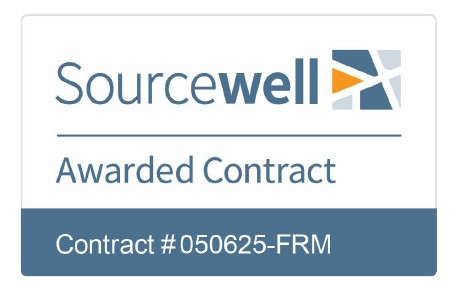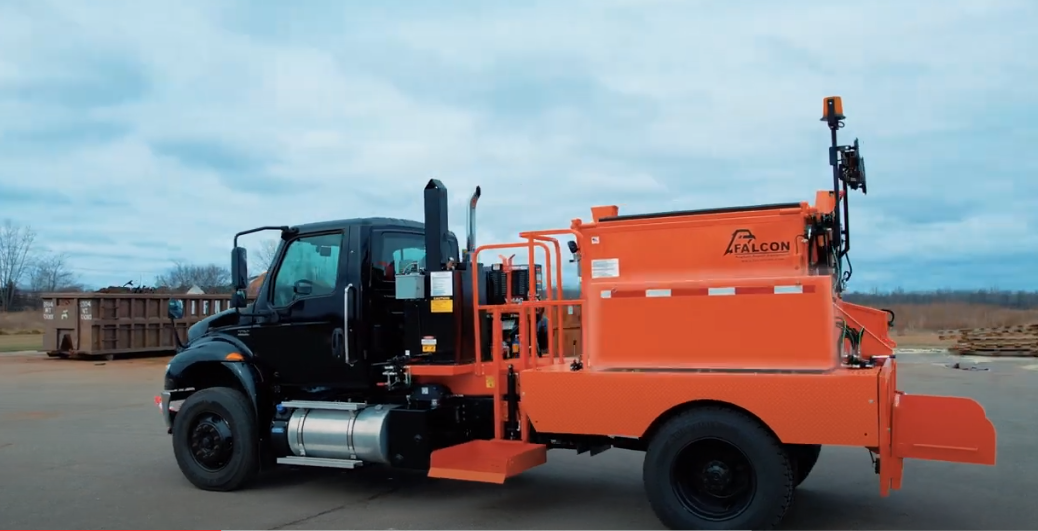As municipalities across the country face chronic staffing shortages, particularly a dwindling supply of qualified CDL drivers, fleet managers must rethink how they staff and equip their road maintenance crews. The type of patch truck selected plays a major role in determining operational efficiency, cost control, and crew retention.
Comparing CDL and non-CDL patch trucks reveals key differences in staffing requirements, cost, and operational flexibility. Whether you’re preparing for next season’s workload or looking to make more strategic equipment investments, understanding the pros and cons of each option is the first step toward smarter, more cost-effective decisions.
The CDL Dilemma: Why Staffing Matters More Than Ever
It’s no secret that hiring and retaining CDL (Commercial Driver’s License) drivers is becoming harder every year. Between stricter federal licensing requirements, retirements, and a booming private sector that offers CDL drivers premium wages, municipalities are finding themselves in a talent war they can’t always win.
Non-CDL patch trucks, by design, can be operated by virtually any crew member with a standard driver’s license. This opens up your labor pool significantly, helping you:
- Avoid delays caused by CDL driver shortages
- Reduce dependency on a shrinking workforce
- Cross-train existing staff without added licensing costs
This flexibility has a direct impact on response time, crew deployment, and your ability to keep up with seasonal repair demands.
Staffing Impacts: Recruitment and Retention
When it comes to recruitment, CDL patch trucks come with built-in limitations. You must not only find qualified operators but also maintain compliance with DOT regulations, offer competitive compensation, and invest in ongoing training and recertification.
In contrast, non-CDL patch trucks:
- Simplify hiring by removing the CDL prerequisite
- Improve retention by empowering existing team members to take on more responsibility
- Boost morale by reducing downtime and unnecessary complexity in daily operations
In short, non-CDL options give your crew more control and allow operations to continue, even when your CDL roster is stretched thin.
Patch Truck Cost Benefit Analysis: The Hidden Price of a CDL Requirement
Every budget season brings new scrutiny to your fleet costs. And while CDL patch trucks may appear to offer more robust capabilities, their hidden costs add up fast. Here’s how a typical cost-benefit analysis compares:
| Cost Category | CDL Patch Truck | Non-CDL Patch Truck |
|---|---|---|
| Licensing & Compliance | CDL certification and DOT paperwork | None required |
| Training & Onboarding | Formal CDL training, extended timelines | Standard onboarding with no special credentials |
| Labor Costs | Higher wages to attract CDL talent | Broader labor pool, lower base pay |
| Equipment Maintenance | Complex systems (augers, conveyors, hydraulics) | Fewer moving parts, lower maintenance |
| Operational Downtime | Auger/conveyor repairs can lead to weeks off | Gravity-fed design = faster, more reliable |
From a financial perspective, non-CDL patch trucks offer a leaner, more cost-effective solution that supports both short-term and long-term budget goals.
Operational Flexibility: Who Can Operate What, and When?
In emergency or high-demand situations, your ability to deploy crews quickly can mean the difference between a pothole patched and a complaint filed. CDL trucks limit the number of eligible operators on your team, potentially causing delays.
Non-CDL patch trucks enhance operational flexibility by allowing any licensed driver to legally operate the equipment. This:
- Reduces bottlenecks in scheduling
- Improves crew efficiency by allowing more team members to participate
- Increases uptime, especially during peak pothole seasons or wintertime repairs
Falcon’s non-CDL patch trucks are built with user-friendly designs and simplified operation, making them ideal for training new employees or temporary staff without compromising performance.
What Are You Giving Up With a Non-CDL Patch Truck?
While non-CDL trucks offer serious advantages, CDL patch trucks still have a place in municipal fleets. Larger crews working on high-volume patching routes or long-haul applications might benefit from:
- Increased material capacity for fewer reloads
- Integrated auger or conveyor systems for specific application needs
- Compatibility with CDL-class dump trucks already in the fleet
If your crew already includes CDL-certified drivers and you’re tackling large-scale utility cuts or extended rural routes, a CDL unit might be worth the investment. Falcon offers customizable patch truck solutions for both CDL and non-CDL setups, allowing you to scale as your operations evolve. Falcon offers 6 & 8 ton patch trucks that require a CDL to operate. These trucks, as well as our 4 ton patch truck, can be built on a day cab or a crew cab.
Falcon Patch Trucks: Engineered for Today’s Municipal Challenges
At Falcon, we understand the real-world pressures municipal road crews face—tight budgets, unpredictable staffing, and year-round demand for pothole repairs. That’s why we designed our non-CDL patch trucks with simplicity, reliability, and flexibility at their core.
Key features that set Falcon Patch Trucks apart:
- No CDL required for operation
- Gravity-fed delivery system with fewer moving parts
- Heats and holds asphalt at optimum temperature for up to 72 hours
- Quick material delivery with the industry’s largest unloading door
- User-friendly interface with Smart Control digital temperature management
Falcon Patch Trucks are compatible with several common truck models, and we offer both customer-supplied and turnkey truck solutions. Falcon can repurpose an older truck in your fleet by removing the current equipment and adding a Falcon Hot Box. Whether you’re upgrading your fleet or trying to stretch your budget further, we’ll help you find the right fit.
Making the Right Call for Your Community
When comparing CDL and non-CDL patch trucks, it’s clear that non-CDL units offer a practical, cost-effective solution for municipalities facing staffing challenges. They reduce barriers to operation, keep costs in check, and empower more of your team to get the job done, without compromising repair quality.
That said, CDL patch trucks still have value for larger-scale or specialized operations, especially when staffed appropriately and integrated into a broader fleet strategy.
At Falcon, we don’t just sell patch trucks—we partner with public works professionals to deliver equipment that matches your operational reality.



Recent Comments